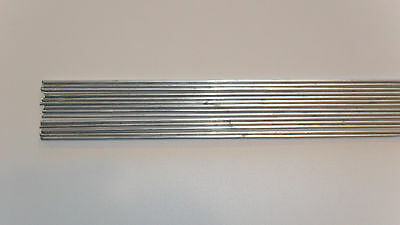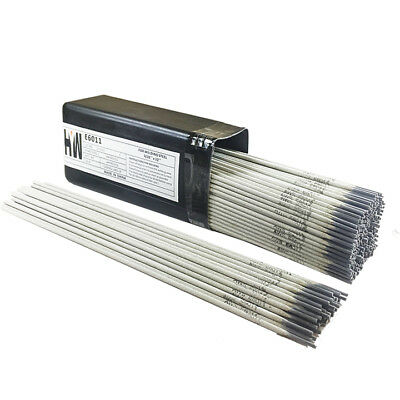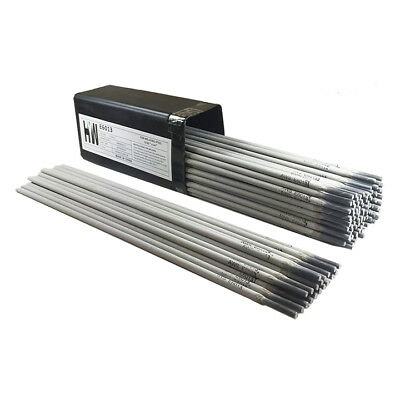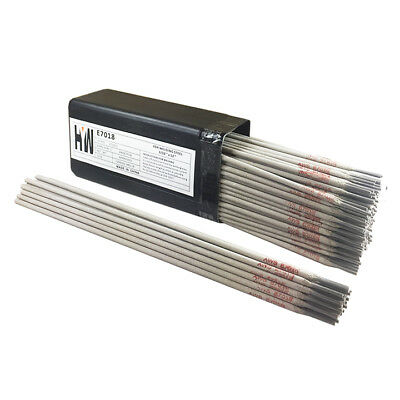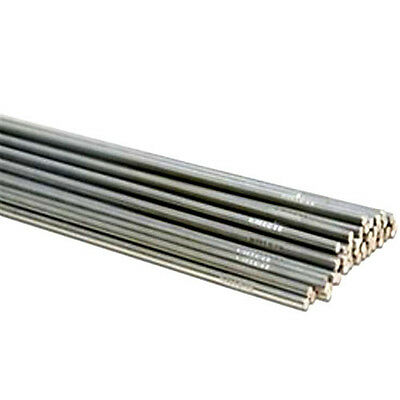-40%
3/32" AZ61A Magnesium Tig 36" Rod - 14 rods (approx. 1/4 lb) - AWS A5.19
$ 13.19
- Description
- Size Guide
Description
This listing is for 14 rods (approx. 4 oz) of Washington Alloy 3/32" AZ61A Magnesium Tig 36" Rod. This is equal in quantity to 28 rods of 18" length as is the length typically sold by other sellers.Below is the Manufacturer's Description:
Specifications:
AWS A5.19
Description:
Washington Alloy AZ 61A is our most popular magnesium wire as it produces superior joints with the maximum tensile strengths offered a magnesium alloy.
Tips for Welding with Magnesium:
Cleanliness of both the base metal and filler metal is extremely important when welding with magnesium. Chemical or mechanical cleaning of the joint area and filler metal to remove any surface oxidation, should precede any welding. This can be accomplished using a solution of 24 oz. chromic acid, 5-1/3 oz. ferric nitrate and 1/16 oz. potassium fluoride in enough water to make one gallon. Bring the solution to 70-90°F, then immerse the part for 3 minutes, rinse in hot water, then air dry. Mechanical cleaning can be done using an aluminum or stainless steel wire brush, steel wool or an aluminumoxide abrasive cloth. Gloves should be worn.
Tig Welding Procedure:
Flux is not required for TIG welding processes. Although this is convenient, it means that cleanliness of the base metal and filler metal is even more critical. Argon is the recommended shielding gas, however, an argon-helium mixture can increase filler metal flow and penetration. Do not use pure helium as this will create undesirable results. TIG welding can be done with AC current, DC reverse polarity or DC straight polarity. AC current will give good penetration. DC reverse polarity (electrode positive) will give shallow penetration but wide weld deposits. DC straight polarity (electrode negative) will give deep penetration but narrow weld deposits.
Oxyacetylene Welding:
Oxyacetylene welding of magnesium is not commonly used. This process should only be considered for single-pass welding on thin gauges of magnesium. A fluoride or chloride flux should be used on the base metal and filler metal in order to clean and protect the weld pool. However, be sure to remove any flux residue by washing in hot water, pickle for 2 minutes in a chrome pickle solution, then boil in a 6% solution of sodium dichro-mate for 2 hours.
Typical Composition:
91% Magnesium
6.5% Aluminum
0.35% Manganese
1.0% Zinc
Trace amounts of Beryllium, Copper, Iron, Nickel, and Zinc
Properties:
-Tensile Strength: 44,000 PSI
-Yield Strength: 30,000 PSI
-Melting Point: 1,140 degrees F
Shielding Gas:
100% Argon or 75% Argon and 25% Helium. DO NOT USE 100% HELIUM.
Shipping:
We offer combined shipping on all tig wire and electrode purchase
s.
